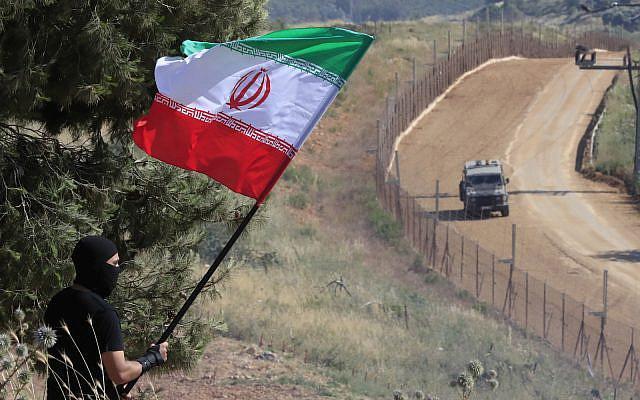
Hezbollah’s dangerous provocations
Near the end of this month, the UN Security Council will convene to renew the United Nations Interim Force mandate in Lebanon (UNIFIL) for another year. But UNIFIL’s mandate to confirm the implementation of Council resolutions regarding Lebanon will remain unfulfilled unless the Council takes the necessary measures to uphold its resolutions.
I was the deputy chief of the Israeli mission to the UN when, in May 2000, Israel pulled back from southern Lebanon to the Blue Line delineated by UN experts. The UN Secretary-General and Security Council confirmed the Israeli withdrawal. (Lebanon claimed that Israel was still holding some Lebanese territory in the Shebaa Farms area, which Israel had seized from Syria in the Six-Day War of 1967. At the UN’s proposal, Syria and Lebanon began negotiations to determine the exact boundary between the two countries but have failed to reach an agreement.)
We on the Israeli side hoped that the withdrawal from southern Lebanon would usher in a new era of co-existence between Israel and its neighbor to the north, but our hopes were dashed as Hezbollah continued to initiate incidents along the Blue Line. On July 12, 2006, it infiltrated the border into Israel and attacked an IDF patrol, killing three soldiers, severely wounding two, and abducting two others (the two abducted were later confirmed dead). This unprovoked attack instigated month-long hostilities between Israel and Hezbollah, during which hundreds of people died, thousands were injured, and hundreds of thousands were displaced on both sides of the border.
The fighting ended on August 14, three days after the Security Council adopted resolution 1701, which called for a “full cessation of hostilities.” The resolution, reaffirming earlier resolutions, called for disbanding and disarming all militias in Lebanon, but Hezbollah has not dissipated; in fact, it has significantly increased its military capabilities.
Resolution 1701 called for re-establishing the Lebanese government’s effective authority along the border with Israel and throughout Lebanon. However, such authority cannot be re-established if Hezbollah acts as an independent armed force. It also called for an embargo on the sale or supply of arms and related materiel to Lebanon, except as authorized by its government. But Iran has continued its shipments of weapons to Hezbollah.
In his periodic reports on the implementation of resolution 1701, including the latest from July 2023, Secretary-General Guterres has repeatedly said that UNIFIL’s freedom of movement, including along the entire length of the Blue Line, is critical for that force to carry out its peacekeeping responsibilities. Yet Hezbollah has denied UNIFIL such access, using, among other means, its “environmental” arm, Green Without Borders, to hinder the UN peacekeepers’ freedom of movement.
Two years ago, I published an article in this newspaper explaining how Hezbollah and its state sponsor Iran violated the main provisions of resolution 1701. Regrettably, the situation hasn’t changed and seems to have even worsened in recent months.
Last March, a terrorist operative infiltrated Israel from Lebanon, evading border patrols and electronic detection systems. After traveling sixty kilometers south to the Megiddo junction, he planted a sophisticated explosive device typically used by Hezbollah. Luckily, only one person was wounded, although seriously. Israeli security forces eventually shot the terrorist dead.
On April 6, 34 rockets were launched from Lebanon into Israel, the most significant barrage since the 2006 war. The Israeli military stated that the attacks were carried out by the Palestinian terrorist group Hamas. Still, they could not have been perpetrated without the permission of Hezbollah, which controls southern Lebanon. Hamas leader Ismail Haniyeh had met with Hezbollah secretary-general Hassan Nasrallah in Lebanon the previous day.
In April and May, Hezbollah erected two tents on the Israeli side of the Blue Line and manned them with armed militants. One of the tents has since been removed, but the other remains. In a televised address marking the twentieth anniversary of the 2006 hostilities with Israel, Nasrallah bragged that “Israel doesn’t dare to make a move…against the tent because it knows what will happen,” adding that the tent “serves the interest of Hezbollah and Lebanon.”
In the past year, Hezbollah’s Green Without Borders has been setting up shipping containers along the Blue Line, many of which have been transformed into permanent military outposts.
Hezbollah has callously entrenched itself among civilians, especially but not only in southern Lebanon, intending to use them as human shields. At the same time, it has boasted of more than one hundred thousand missiles aimed at Israeli civilian centers. Israeli political and military leaders have repeatedly warned that in a significant escalation with Hezbollah, Israel will have no choice but to attack that terror organization’s positions wherever they are.
Hezbollah has all the attributes of a terrorist organization, foremost among them deliberate attacks against civilians to advance political goals. It threatens peace and security in the region and beyond and is the main obstacle to fulfilling UNIFIL’s mandate. The Security Council must use the powers conferred upon it by the UN Charter, including the authority to impose sanctions on terrorist organizations and their state sponsors, to uphold its resolutions.
My organization, American Jewish Committee, has recently alerted Secretary-General Guterres and members of the Security Council to the dangers emanating from Hezbollah’s provocations. We will do the same in our meetings next month with dozens of world leaders on the sidelines of the UN General Assembly. The hostilities between Israel and Hezbollah in 2006 should serve as a reminder of how tragic the consequences of inaction can be.
Source » timesofisrael.com





